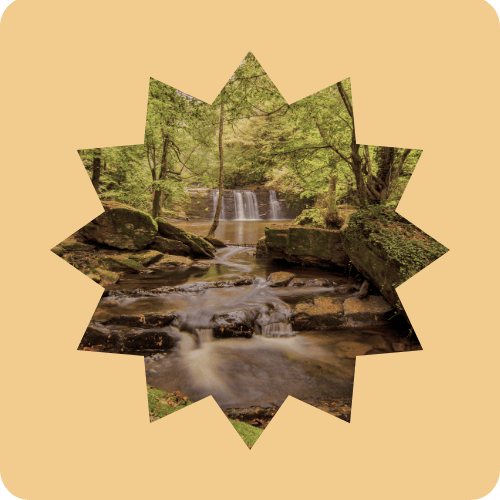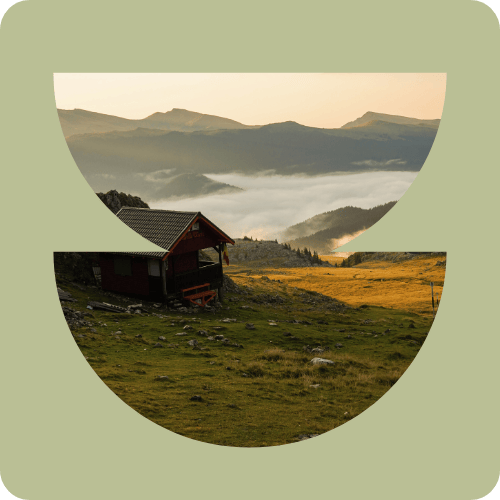Go-to-Guide for Voting in the 2025 Federal Election
Author
Anna Huschka
My name is Anna (she/her), and I am a white settler located on the lands of the Williams Treaty First Nations – the Alderville First Nations, Beausoleil First Nation, Chippewas of Georgina Island, Chippewas of Rama, Curve Lake First Nation, Hiawatha First Nation, and Mississaugas of Scugog Island. I do not intend to speak on behalf of any communities I am not a part of. I hope to leverage my position of privilege as a cisgender white woman to amplify the efforts and voices of those doing so much work towards climate justice in their communities across the country. I want to be a part of challenging the Euro-settler-centric and Western values that currently shape climate policies, to counteract colonial and systemic barriers, ensuring that the concerns, exposures, and knowledges of diverse communities are adequately incorporated into environmental policies and projects.
I am privileged to have the right to vote without having to have fought for it, and recognize the decades of advocacy of non-white communities and women to obtain this right. Through the development of resources like this one, I hope to make voting more accessible and combat misinformation, while also recognizing the physical barriers many communities face, including lack of accessible voting locations. With my work on elections resources, I hope to encourage a trend of political awareness and civic engagement, including through voting.
Editor
Mei-Ling Patterson

Am I Eligible to Vote?
In order to vote in a federal election in Canada you must be:
- 18 years of age or older
- A Canadian citizen (1)
When you cast your ballot, you will have to provide some form of ID that proves that you are a resident of the riding in which you are voting. See the list of the possible forms of ID you can use here.
Voter Registration
You must be registered in order to vote (1). While you can register the day you cast your ballot at your local Elections Canada office or voting location, if you are registered prior to election day, you’ll receive a voter information card in the mail with information about where and when you can vote (1)!
Your Options for Voting in the 2025 Federal Election
Election Day is Monday April 28th, 2025 (2)
*KNOW YOUR RIGHTS*As mandated in the Canada Elections Act, all eligible voters are entitled to three consecutive hours outside of work to be able to vote on Election Day (3). So if your work schedule doesn’t allow you three straight hours off, your employer must let you either come in late, leave early, or give you up to 3 hours off during your work hours to go vote (how you get these three hours is up to your employer) (4). There are a couple exceptions to this law, read more about your rights to time off here. |
But this isn’t the only time or way you can vote:
Advanced Voting: you can vote in advance on April 18th, 19th, 20th, and 21st, 2025 (2)
Not going to be in Canada or your home riding on Election Day?
Vote-by-mail: register to vote by mail by 6pm Eastern Time Tuesday April 22nd, 2025 and make sure your ballot has been received by 6pm Eastern Time on Monday April 28th, 2025, as ballots received after this time will not be counted (5).
Canadians who live abroad can find more information here.
Vote on Campus: students can vote on select university and college campuses April 13th, 14th, 15th, and 16th (2)
*You can also vote by special ballot at your local Elections Canada Office by 6pm Eastern Time on Tuesday April 22nd, 2025 (2)* Find your local Elections Canada Office and its operating hours here. |
How do Federal Elections Work in Canada?
Federal elections are triggered by the Governor General at the advice of the Prime Minister (7). Federal elections are scheduled in the Canada Elections Act for the third Monday in October four years following the previous federal election (7). The call for a federal election can come anytime before the fixed date in October, including as a result of a non-confidence motion. You can read more about confidence motions here.
Federal Election Steps
- To start the federal election process, the Governor General will instruct Elections Canada’s Chief Electoral Officer to “drop the writs”, connecting with the electoral officer of each riding to start an election (8). So rather than 1 massive election, there will actually be 343 simultaneous elections happening.
- After the writs drop, political parties will select their candidates to run in each riding (8). Candidates are also able to run as “independent” or with “no affiliation” (8).
- Campaigning begins as candidates and parties share and promote their platform of promises and policy commitments (8). They will also engage with voters through television and radio ads, social media posts, street signs, and canvassing in neighbourhoods.
- There are also two leadership debates, one in each official language, organized by the Leaders’ Debate Commission between invited leaders of major political parties (9). Some ridings will have candidate debates organized locally as well.
- Votes are cast and ballots are counted to determine the winning representative in each riding, and the overall winning party (8). During federal elections ballots are counted by hand by elections workers, rather than using automatic ballot counters (10).
Click here to learn more about how a federal election works.
Possible Results
Majority Government:
If a party wins more than half of the ridings/seats (172 out of 343), then they will form a majority government (11). This gives the government more stability as they have the majority of decision-making power to pass legislation, and they are more likely to last until the next fixed election date (11).
Minority Government:
If no party wins over half the seats, then the party who obtains the most seats will form a minority government (11). Minority governments typically result in more intergovernmental collaboration as the governing party will need support from other parties in order to obtain the majority support needed to pass bills or motions (11). Minority governments also tend to have less stability, they can fall to confidence motions (11).
Click here to learn more about the history of federal minority governments in so-called Canada.
Coalition Government:
Parties can form government together, resulting in a coalition government, though these are incredibly rare in Canada (11). Minority governments can and have entered informal agreements with other parties, but this is distinctly different from forming a government together in a coalition (11).
How Does my Vote Apply?
First Past the Post:
We currently have a first past the post electoral system. For a federal election, the electoral system applies in two ways:
In each riding: the candidate who receives the most votes wins a seat in the House of Commons (12)
To form government: the party that wins the most seats/ridings will lead as the governing party (12)
Strategic Voting:
One of the biggest flaws of the first-past-the-post electoral system is that it fosters a political environment in which voters feel more inclined to vote strategically in order to guarantee a loss for a party they don’t want to see in power, rather than voting for the representative they most want to see win.
Electoral Reform:
Another commonly discussed issue with first past the post, is the fact that it can potentially leave a lot of voters unrepresented in government because only the candidate with the most votes wins a seat. For example, in the 2025 Ontario provincial election, in the riding of Burlington, the top two candidates received just over 24,000 votes each, with only 40 votes separating them (13). A first past the post electoral system means that only one of these candidates gets to represent the riding in government, which leaves quite a lot of voters unrepresented.
This has left organizers calling for reforms to the current electoral system, such as the election of multiple representatives per riding to the government, or the implementation of a ranked ballot that would allow voters to rank their candidates in order of preference (14). There are quite a few options for what our electoral system can look like, and it is our job as voters to call on our government to create a system that better represents our votes.
Ultimately even if the candidate you vote for doesn’t win, your vote still demonstrates to candidates and parties what issues matter most to your community, which can influence what kind of issues are addressed in government and added to future party platforms.
References
- Elections Canada. Voter Registration [Internet]. Elections Canada; [cited 2025 Mar 2]. Available from: https://www.elections.ca/content.aspx?section=vot&dir=reg&document=index&lang=e
- Elections Canada. Key federal election dates [Internet]. Elections Canada; [cited 2025 Mar 23]. Available from: https://www.elections.ca/content2.aspx?section=kdt&document=index&lang=e
- Government of Canada. Canada Elections Act (S.C. 2000, c.9.) [Internet]. Government of Canada; 2025 Feb 13 [cited 2025 Mar 2]. Available from: https://laws-lois.justice.gc.ca/eng/acts/E-2.01/section-132.html
- Elections Canada. FAQs on Voting – Time off Work to Vote [Internet]. Elections Canada; [cited 2025 Mar 2]. Available from: https://www.elections.ca/content.aspx?section=vot&dir=faq&document=faqvoting&lang=e#a6
- Elections Canada. Special Ballot [Internet]. Elections Canada; [cited 2025 Mar 23]. Available from: https://www.elections.ca/content2.aspx?section=vote&dir=spe&document=index&lang=e
- Elections Canada. Seats in the House of Commons [Internet]. Elections Canada; [cited 2025 Mar 23]. Available from: https://www.elections.ca/content.aspx?section=res&dir=cir/dis&document=index&lang=e
- Elections Canada. FAQs on Elections – Election Calls and Timing [Internet]. Elections Canada; [cited 2025 Mar 2]. Available from: https://www.elections.ca/content.aspx?section=vot&dir=faq&document=faqelec&lang=e#a10
- Elections Canada. Elections Step by Step [Internet]. Elections Canada; [cited 2025 Mar 5]. Available from: https://electionsanddemocracy.ca/canadas-elections/canadas-election-process/elections-step-step
- Government of Canada. Leaders’ Debate [Internet]. Government of Canada; modified 2024 Sep 9 [cited 2025 Mar 5]. Available from: https://www.canada.ca/en/democratic-institutions/services/leaders-debates.html
- Elections Canada. FAQs on Elections – Election Process and Results [Internet]. Elections Canada; [cited 2025 Mar 5]. Available from: https://www.elections.ca/content.aspx?section=vot&dir=faq&document=faqelec&lang=e#a9a
- Parliament of Canada. Majority and Minority Governments [Internet]. Parliament of Canada; [cited 2025 Mar 5]. Available from: hhttps://learn.parl.ca/understanding-comprendre/en/how-parliament-works/majority-and-minority-governments/
- Elections Canada. The Electoral System of Canada [Internet]. Elections Canada; [cited 2025 Mar 5]. Available from: https://www.elections.ca/content.aspx?section=res&dir=ces&document=part1&lang=e
- Global News Staff. Ontario Election 2025 results: Burlington [Internet]. Global News; modified 2025 Feb 27 [cited 2025 Mar 7]. Available from: https://globalnews.ca/news/11025812/ontario-election-2025-burlington/
- Ranked Ballot Initiative of Toronto. What are Ranked Ballots? [Internet]. Ranked Ballot Initiative of Toronto; [cited 2025 Mar 7]. Available from:https://www.rabit.ca/what_are_ranked_ballots



